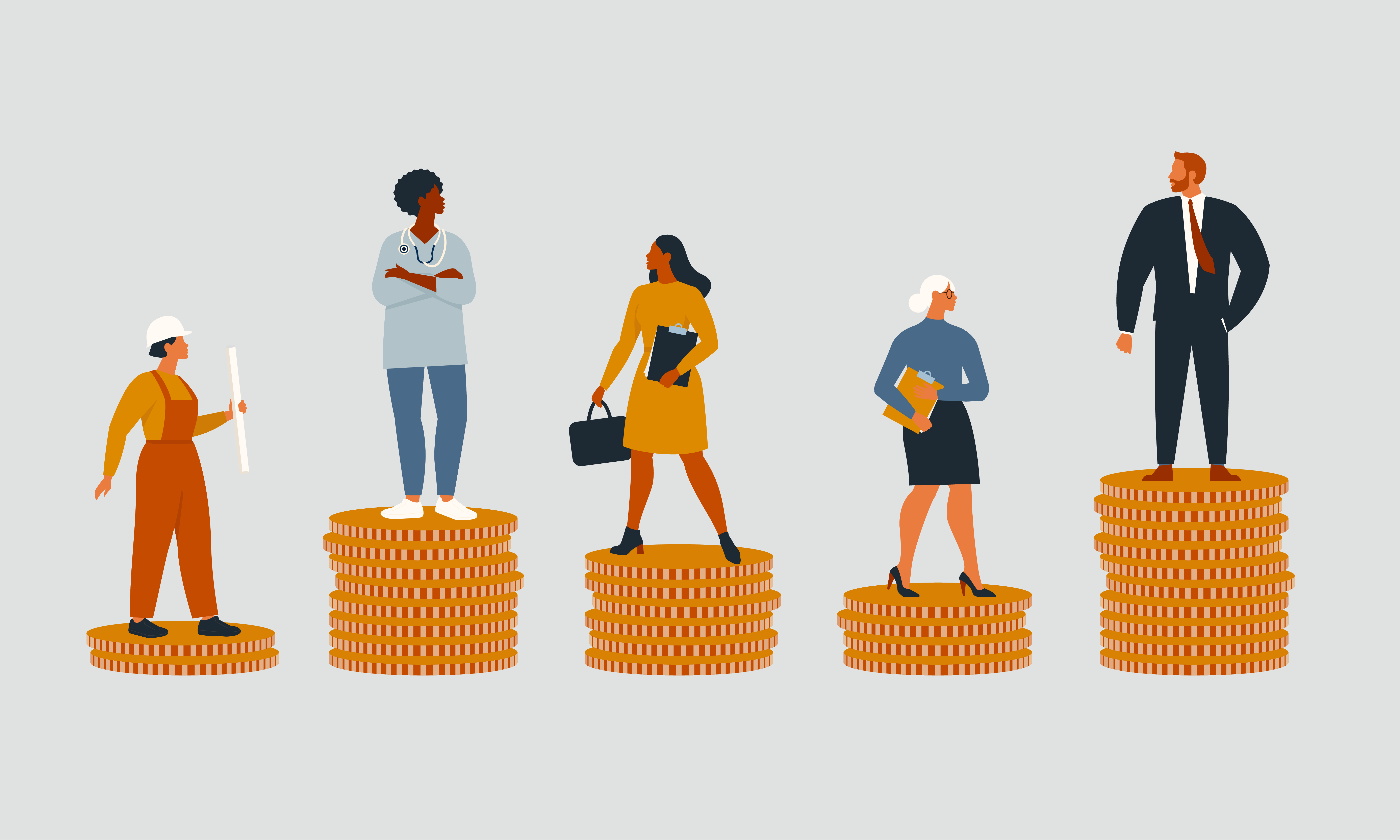What are greedflation and wageflation?
Just when you thought you'd wrapped your head around inflation, two more terms enter the economic lexicon


A free daily email with the biggest news stories of the day – and the best features from TheWeek.com
You are now subscribed
Your newsletter sign-up was successful
We've heard a lot about inflation in recent years, but we might not be as familiar with two terms that describe phenomena that could be partly driving it: greedflation and wageflation.
"When inflation took off in 2021 in the U.S., so did corporate profits," said The Wall Street Journal. This raised some eyebrows. But just as profit margins are beginning to narrow, "wages are now growing faster than prices," which is "just as problematic for getting inflation down."
What are greedflation and wageflation?
Greedflation is "inflation driven by corporations flexing their power to jack up prices more than cost," the Journal explained. In other words, when the "circumstances of 2021 and 2022 made for a seller's paradise," corporations cashed in. "Pretax margins shot from 15.6% in the fourth quarter of 2019 to 17.9% in the second quarter of 2021," based on the Commerce Department's measure of total value added by corporate businesses.
The Week
Escape your echo chamber. Get the facts behind the news, plus analysis from multiple perspectives.

Sign up for The Week's Free Newsletters
From our morning news briefing to a weekly Good News Newsletter, get the best of The Week delivered directly to your inbox.
From our morning news briefing to a weekly Good News Newsletter, get the best of The Week delivered directly to your inbox.
Wageflation, on the other hand, occurs when wages grow at a faster rate than prices. It's "a precipitous, unexpected and immediate rise in wages based on unique market forces," wherein "employers pay more for the same job and the same level of productivity," Forbes said. While wageflation might be less enraging for the average American, given that it's a win for workers, it's still "a key driver" of the inflation situation we're in right now, per CNBC.
When you apply via our links we may earn an affiliate commission.
How are they relevant to the economy right now?
Greedflation is "on its way out," the Journal said. "Pretax margins, which widened sharply in 2021 and 2022, were roughly back to prepandemic levels in the first quarter of 2023." This is further evidenced by the fact that "margins in six of the S&P 500's 11 sectors were lower in the second quarter than four years earlier," the Journal added.
The trend of wageflation, however, seems to be stubborn. "In the first quarter of 2023, wages and salaries rose to 49.3% of corporate value added, higher than in 2019," the Journal said. Additionally, "labor costs per unit of sales rose 6% in the year through the first quarter, ahead of prices, which were up 5.3% in the same period."
A free daily email with the biggest news stories of the day – and the best features from TheWeek.com
However, the precipitous rise in wages may be leveling off. "Layoffs have skyrocketed nearly fivefold in 2023 across some industries," CNBC said. "The only way to correct for overpaying on base salary is reductions in force … And part of that reduction is layoffs," Lori Wisper, managing director at Willis Towers Watson, told CNBC.
Where does all this leave the economy? We're at a crossroads, said the Journal. "Either profit margins will have to narrow further, which businesses will resist; high inflation will have to continue, which the Federal Reserve is fighting; or productivity will have to boom, of which there is no sign yet. If none of those things happen, then wageflation, like greedflation, will have to go away."
What does this mean for your wallet?
If you're a worker who has benefited from wageflation, you're likely "seeing rising purchasing power," Axios said. However, there's a question of "whether the labor market will be strong enough to keep real wage gains coming as inflation continues to diminish."
As far as how supply and demand constraints are affecting the prices of goods and services, it varies by industry. Supply "seems to be improving, at least for goods," according to the Journal. "Global shipments of automotive semiconductor chips and U.S. auto production in the past few months are finally above prepandemic levels," which has led to rising automotive inventories and incentives.
But at the same time, "demand for services is holding up better," as the "services supply is still constrained," the Journal added. "One reason air travel is so expensive is that airline capacity this year is about 14% below prepandemic trend levels."
Becca Stanek has worked as an editor and writer in the personal finance space since 2017. She has previously served as the managing editor for investing and savings content at LendingTree, an editor at SmartAsset and a staff writer for The Week.
Becca Stanek has worked as an editor and writer in the personal finance space since 2017. She previously served as a deputy editor and later a managing editor overseeing investing and savings content at LendingTree and as an editor at the financial startup SmartAsset, where she focused on retirement- and financial-adviser-related content. Before that, Becca was a staff writer at The Week, primarily contributing to Speed Reads.
-
 The Olympic timekeepers keeping the Games on track
The Olympic timekeepers keeping the Games on trackUnder the Radar Swiss watchmaking giant Omega has been at the finish line of every Olympic Games for nearly 100 years
-
 Will increasing tensions with Iran boil over into war?
Will increasing tensions with Iran boil over into war?Today’s Big Question President Donald Trump has recently been threatening the country
-
 Corruption: The spy sheikh and the president
Corruption: The spy sheikh and the presidentFeature Trump is at the center of another scandal
-
 How your household budget could look in 2026
How your household budget could look in 2026The Explainer The government is trying to balance the nation’s books but energy bills and the cost of food could impact your finances
-
 What is a bubble? Understanding the financial term.
What is a bubble? Understanding the financial term.the explainer An AI bubble burst could be looming
-
 The FIRE movement catches on as people want to retire early
The FIRE movement catches on as people want to retire earlyIn the spotlight Many are taking steps to leave the workforce sooner than usual
-
 Who wants to be a millionaire? The dark side of lottery wins
Who wants to be a millionaire? The dark side of lottery winsIn The Spotlight Is hitting the jackpot a dream come true or actually a nightmare?
-
 How can you find a financial adviser you trust?
How can you find a financial adviser you trust?the explainer Four ways to detect professionals who will act in your best interest
-
 With economic uncertainty, 2025 looks to be a 'No Buy' year
With economic uncertainty, 2025 looks to be a 'No Buy' yearIn the spotlight Consumers are cutting back on splurges to combat overconsumption
-
 3 tips to lower your household bills
3 tips to lower your household billsThe Explainer Prices on everything from eggs to auto insurance to rent have increased — but there are ways to make your bills more manageable
-
 What should you consider when choosing a financial adviser?
What should you consider when choosing a financial adviser?The Explainer The right person can be a big help with financial planning, investing, taxes and more
